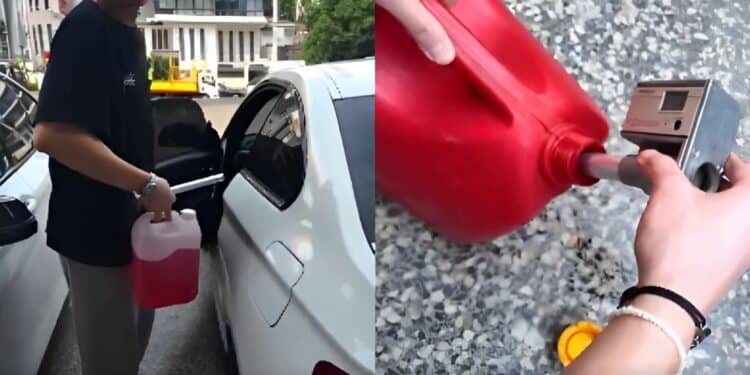The Energy and Petroleum Regulatory Authority (EPRA) and the Kenya Bureau of Standards (KEBS) have finally cleared the air on concerns raised about the quality of petroleum fuels in the market.
In a joint statement released on Thursday, February 6, the regulatory bodies reassured Kenyans about the quality of petroleum fuels available in the country.
The statement is a response to recent reports and videos circulating online that point to possible quality inconsistencies in the fuel supplied at various stations.
According to EPRA and KEBS, all petroleum fuels imported into Kenya undergo rigorous testing and certification before being released into the market.

Moreover, the authorities assured Kenyans that Shell V-Power and other petroleum fuels in the country meet the required quality standards.
the statement cautioned the public against relying on such devices to determine fuel quality, as their results may not always be accurate.
“We would like to caution consumers and the general public that there are gadgets in the market that can provide a qualitative indication of the RON rating,
“But the results from these gadgets cannot be guaranteed unless confirmed through laboratory tests that follow the required standard procedures of sampling, equipment calibration, and testing,” the statement read in part.
Also Read: Vivo Energy Responds to Concerns Over Quality of Vital V-Power Fuel
EPRA and KEBS Conduct Separate Tests
At the same time, KEBS and EPRA conducted confirmatory tests on fuel samples from various petroleum retail stations, including those specifically mentioned in public reports.
The results, according to the regulators, confirm that the fuel at all sampled stations meets the recommended Research Octane Number (RON) ratings as stipulated by Kenyan standards.
“Our tests indicate that all sampled fuel meets and even exceeds the required octane levels. Consumers should, therefore, have confidence in the fuel quality available in the market,” the statement read.
Super Petrol, including premium variants such as Shell V-Power, is categorized based on its RON rating, which determines its suitability for different engine configurations.
Also Read: Global Oil Prices Fall a Week After Kenya’s Fuel Increase
Tests on RON Fuels and What They Mean
EPRA assured consumers that higher RON fuels marketed as premium products consistently adhere to these standards.
They also addressed concerns regarding premium fuel, emphasizing that Super Petrol marketed with higher RON ratings has met the stipulated thresholds.
Tests on four samples showed that all had RON values above the recommended 95, with results ranging from 95.9 to 96.1.
Also, the regulators stressed that fuel quality tests must be conducted in controlled laboratory environments where all variables can be accurately measured and monitored.
“The Kenya Bureau of Standards and EPRA remain dedicated to ensuring that the fuel available to consumers meets the highest standards. We understand the importance of this issue to the public and continue to prioritize their safety and satisfaction,” the agencies stated.
Follow our WhatsApp Channel and join our WhatsApp Group for real-time news updates










































































